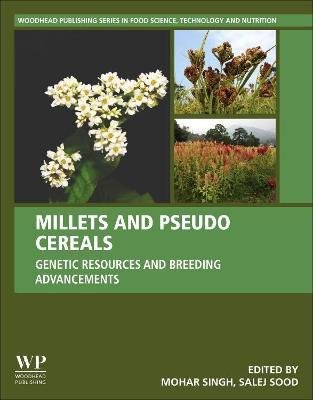Millets and Pseudo Cereals is the first comprehensive resource to focus on the potential crop improvements through genetic enhancements. The choice of food crop for a region is primarily determined by the conditions of climate and soil. Once labelled as orphan crops, millets and pseudo-cereals are now known as miracle grains due to their adaptation to harsh conditions and high nutritional quality. Small millets and pseudo-cereals are now seen to occupy special niches through their ability to adapt to challenging conditions. These crops have a comparative advantage in marginal lands where they withstand stress conditions and contribute to sustainable production. They also contribute to the diversity-richness and production stability of agro-ecosystems. Millets include sorghum, pearl millet, finger millet, foxtail millet, proso millet, barnyard millet, little millet and kodo millet while the other group which are not cereals but consumed as cereals and generally referred as pseudo-cereals comprises of grain amaranths, buckwheat and chenopods. Millets and Pseudo Cereals presents current information on the genetic architecture of important economic traits and the genomic resources for gene enabled breeding. This compilation contains information on the global status, available germplasm resources, nutritional value, breeding advancements, genomics applications and sustainability of agriculture through millets and pseudo-cereals cultivation. This book is a valuable resource for those conducting research and exploring new areas for advancing crop genetic understanding.



